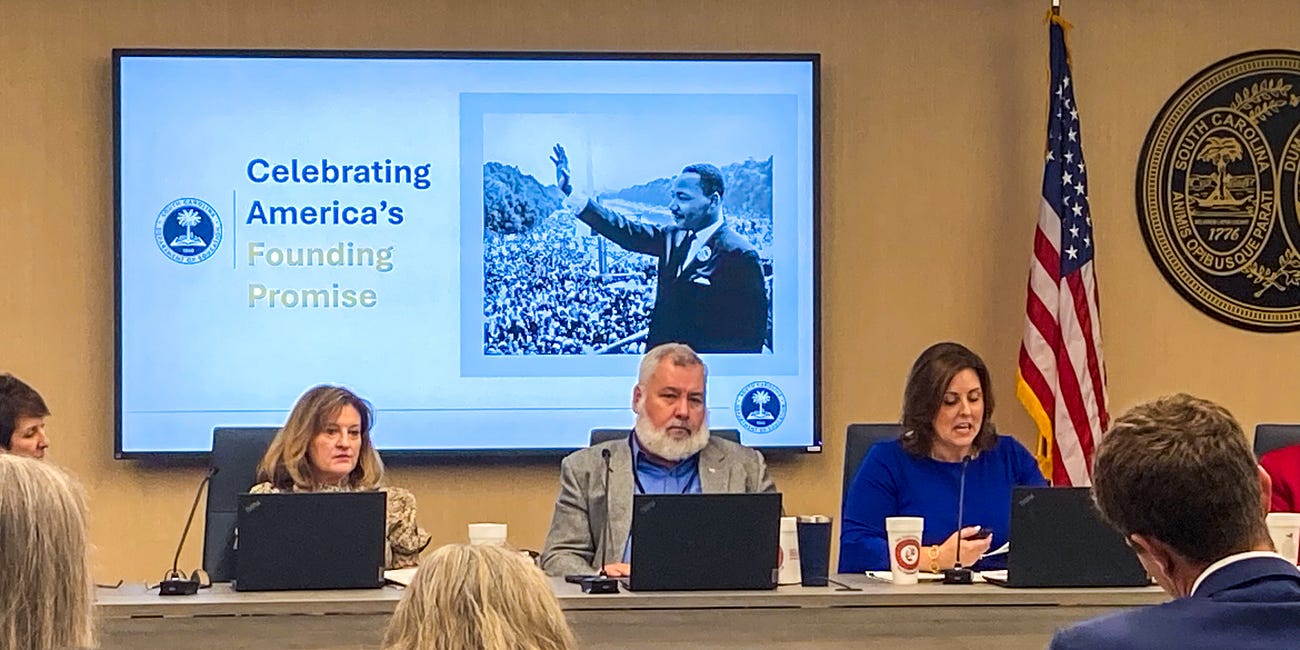SC committee moves to restrict CRANK, delay decisions on other books
The committee featured a number of apparent changes to procedure
The South Carolina Instructional Materials Review Committee held its second meeting today after being established this year in response to the passage of State Board Regulation 43-170, which expands the State Board of Education’s power over instructional materials decisions and attempts to define content which is unsuitable for all students. The committee ultimately voted unanimously to restrict one book, retain another, and postpone decision on the rest.
A meeting mired in technical glitches
Chair Christian Hanley (a former school board candidate, representing Berkeley and Charleston), as he did during the first committee meeting, began by addressing technical issues that would go on to plague the whole meeting, which was held through the online platform WebEx.
“We’re having trouble getting the electrons talking to each other,” Hanley joked, as he had during the pervious meeting.
SC committee votes to remove seven books statewide
Update: the week after I wrote this, the full board voted to agree with the subcommittee’s decisions. Again without reading the books or examining additional language, the Board voted to retain the three “classics,” ban seven books from every public school in the state, and made no decision about Ellen Hopkins’
At one point, Hanley acknowledged they set up the WebEx meeting incorrectly and that some individuals who h…
Keep reading with a 7-day free trial
Subscribe to Other Duties (as assigned) to keep reading this post and get 7 days of free access to the full post archives.




